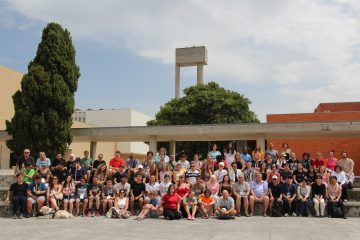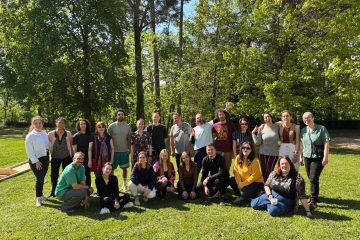On 14th May European Disability Forum organised the webinar which was focused around Erasmus +, one of the most known programmes in Europe. Thanks to Erasmus + many students get the opportunity to travel across the Europe. However, the conference concerned the new directions of the programme and extra support to people with disabilities.
The webinar was opened by our VIEWS staff member Loredana, who was a moderator of this event. She briefly presented the subject of webinar, the agenda and the guests of conference.
The first speaker was Marta Gutierrez Benet from the European Commission Directorate General for Education and Culture (DG EAC). As a person responsible for the Erasmus + programme in European Commission she explained general assumptions of this project. The Erasmus + program currently consists of three Key Actions, with KA1 being the most popular. Getting to the details, around 37,000 people with special needs took part in the KA1 in 2014-2018. Over 5000 disability projects have been financially supported since 2014. Also, around 22,000 inclusion projects have been created under all KA, which represents around 18% of the Erasmus + programme.
What about the future of the Erasmus programme for people with special needs? We received a short plan of what we can expect:
Enhanced visibility of inclusion and diversity measures
A more accessible programme for people with fewer opportunities and organisations in this field.
Inclusion and diversity at the heart of the future Erasmus
It is important that EC is constantly working on improving the program and thus expanding the group of its beneficiaries, while making their activities more accessible.
Monitoring organizations are also useful for improving Erasmus +. At the conference one of the representatives of such an organization was Dominique Montagnese, inclusive mobility expert from Support Center Inclusive Higher Education (SIHO). His speech focused on the obstacles encountered by participants in the Erasmus + programme. As we could hear, the most common problems appear in the communication field between a participant and an organization. Equally often, there is a lack of institutions dedicated to support people with special needs. He also mentioned the platform www.inclusivemobility.eu , which is a huge information database, containing analyzes of many countries in the field of the rights of persons with disabilities and advice on preparation for the Erasmus + project. Besides, on the platform are surveys conducted to improve the functioning of the programme; thus they gather opinions and suggestions for changes from: students with disabilities, Higher Education Institutions, Ministries for Education. There you might find also testimonials of students who already participated in Erasmus +.
We had the opportunity to listen to the testimonies of Klass and Virginia, i.e. two young beneficiaries of the Erasmus +. They also emphasized that more attention should be paid to communication between relevant institutions and participants. Otherwise, they emphasized the important role of social media in thier projects. It was on the internet that they could find many advices and people able to help them.
We are truly glad that the Erasmus + programme is constantly evolving because we consider ourselves part of it. The important issue is also providing it more inclusive for disabled people. The current huge challenge is the pandemic of COVID-19, but we hope that the people and organisations will be still able to profit of Erasmus + in safety environment.


